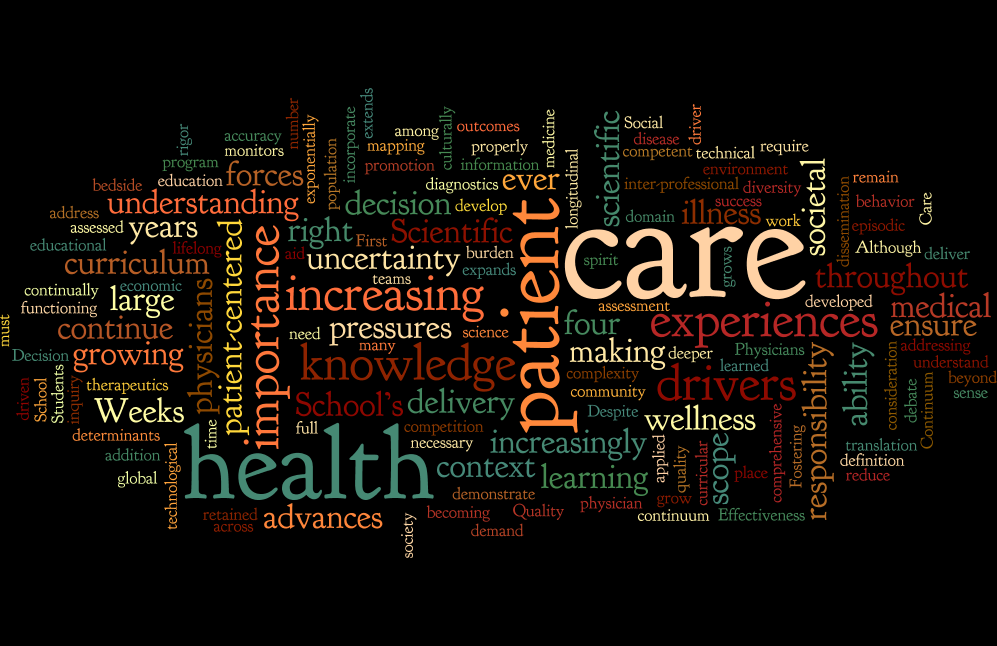Patient, Physician and Society (PPS) is the curricular component which engages students in the social and behavioral sciences underlying the practice of clinical medicine.
Through large group and skill-based small group sessions, students participate in discussions and debates, and practice the Zucker School of Medicine themes: professionalism, interpersonal skills and communication, and physical diagnosis as well as the drivers: the care continuum, decision making under uncertainty, social context and responsibility, quality and effectiveness, and scientific discovery. During the First 100 Weeks, the themes and drivers of PPS are experienced via 12 curricular threads :
- Communications
- Epidemiology
- Interprofessional Education
- Lifestyle Medicine
- Healthcare Financing and Policy
- Health Equity
- Ethics and Professionalism
- Patient/Caregiver Perspectives
- Reflection
- Patient safety and Quality
- Geriatrics and Palliative Medicine
- Pediatrics and Adolescent Medicine
Most small group sessions in PPS are taught in longitudinal groups which create a safe environment to build professional peer relationships, discuss challenging topics in healthcare, and learn from one other. Continuity groups led by faculty mentors allow students to develop their own professional identity using the tools of reflection and small group discussion.
Large group sessions expose students to topics from ethics to epidemiology and provide a forum to bring patients into the classroom to discuss their illness and care integrated with the theme of the week and concepts taught through PEARLS, Structure, and MHDI. PPS sessions allow students to practice doctoring skills relevant to their early clinical experiences and reflect upon their professional and personal growth.
PPS content is integrated with MHDI, PEARLS, and Structure themes of the week and intimately tied to the clinical skills curriculum and assessment.
